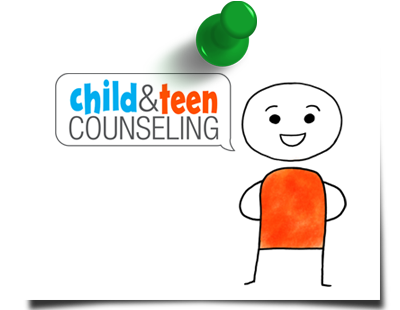Discussing Grief and Loss with Your Child
At some point in all our lives we experience loss
and the natural reaction to loss, grief. Because grief is such an
individualized experience, it appears differently for everyone. This can pose
as a challenge for parents who need to address the loss with their child(ren)
while simultaneously grieving themselves. Here are some things to consider when
discussing loss with your kid.
You Don’t Need to Have All the Answers
Children will have plenty of questions and sometimes you may not know how to answer them.
They may ask you why people die or what happens to them when they do. “You know, I actually don’t know what happens after we die, but I do know when someone dies, they stop breathing and their heart stops working” could be a response.

This would be an appropriate response as it models for them that it’s okay not to know everything while also minimizing confusion. The most important thing is that you are present for those questions and attentive to their curiosity. Validate their interest in identifying their feelings of grief by asking, “How do you feel about death?” or sharing, “This is how it makes me feel…”.
It’s Okay to Express Your Own Feelings of Grief
Expressing your own feelings of grief acts
as a model for children and encourages them to do them same. It tells your kid that
it’s okay to feel what they are feeling. You could say, “I’m feeling really sad
so I’m going to watch a funny movie to cheer me up. Would you like to join me?
What should we watch?” Show your kid examples of healthy coping skills and
share your experience of loss with them.

Don’t Be Afraid to Use the Words Dead and Died
There sometimes is a tendency to refrain
from using terms like dead and dying when talking to children. However,
avoiding them and replacing them with phrases like “they are just resting” or
“closing their eyes” can cause confusion and uncertainty about the permanency
of death. Using the proper words will ensure that your kid will know what
exactly is happening.
Help Children Understand What Death Is
Furthermore, it may benefit your kid if you
explain what death means so they can understand it. Sit your kid down and let them
know that death is irreversible and that eventually everything will die.
Defining clearly that life ends at the time of death and that there are
physical reasons that someone dies are all distinct messages to your kid of why
and how the loss of a loved one has occurred. This is important because
children may become anxious without further knowledge on how death works. If
they are not aware of what death is, they may start to develop a fear of
everyone around them suddenly dying.
Invite Children to Participate
Explaining what will happen at the funeral/memorial services and inviting your kid to participate can be a great way to help the kid gain closure. Let your kid decide if they would like to attend, and if so offer them a role in the service that is not too overwhelming.

Some examples may be inviting them to pass out programs, sing a song, or hand out flowers. This can provide comfort to them. A key component to supporting your kid through the service is to have a trusted adult who does not have a major role in the services and can be at your kid’s side throughout the service to answer their questions and console them if needed.
To learn more about the grief and loss process and how it
may impact your child, please visit: https://grievingstudents.org/
.
